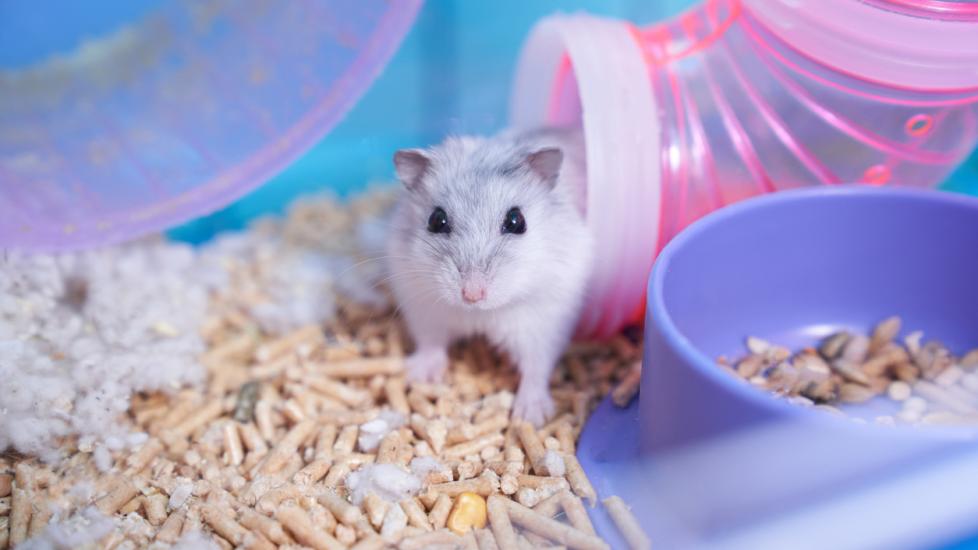Hamster Age-Appropriate Caring
Caring for a hamster is a rewarding experience that requires understanding the unique needs of your pet at various life stages. From delicate pups to spirited adults, the way you care for your hamster changes as they grow. In this article, we’ll explore age-appropriate hamster care, ensuring your furry friend stays healthy and happy throughout their life.
Caring for Baby Hamsters
Baby hamsters, also known as pups, are the most vulnerable stage of a hamster’s life. Typically, they are weaned from their mother at around three weeks old and need a warm, safe environment to thrive. It’s essential to provide a proper habitat, including bedding that is soft yet absorbent, such as paper-based products. The **puppy stage** is crucial for their development, so ensure that they have access to a nutritious, high-quality hamster diet specially formulated for young hamsters.

Feeding and Nutrition for Pups
Feeding baby hamsters is critical, as they need a diet rich in protein and other nutrients to support their rapid growth. High-quality hamster pellets designed for pups are ideal, supplemented with soft vegetables and protein sources like cooked egg. **Hydration** is just as important; ensure that their water bottle is clean and filled with fresh water daily. Monitor their eating habits; if a pup is not eating enough, consult a veterinarian to rule out health issues.
Socialization and Handling
Socialization in baby hamsters is essential to ensure they become friendly pets. Begin handling them gently as soon as they are ready, usually around three to four weeks of age. Start by letting them sniff your hand before lifting them. **Positive interactions** help them become accustomed to human contact, and spending a few minutes each day encourages strong bonds. Remember, patience is key, as too much handling can stress young pups.
Caring for Adult Hamsters
Once your hamster reaches adulthood—around four to six weeks—they will have transitioned into a more independent and energetic phase of life. Adult hamsters require more space to play and exercise, so a larger cage with multiple levels and climbing opportunities is ideal. Also, ensure their **environment** is enriched with toys and tunnels to keep them mentally stimulated.

Exercise and Enrichment Needs
Adult hamsters thrive on exercise, so it’s vital to provide them with opportunities to run and explore. A hamster wheel is essential, but also consider giving them time outside their cage in a safe, supervised area. **Enrichment** items like chew toys, tunnels, and hiding places will help prevent boredom and keep your hamster engaged. Regular playtime and exploration can contribute significantly to your hamster’s physical and mental health.
Common Health Issues and Prevention
As hamsters age, they may develop health issues such as obesity, dental problems, or skin conditions. Regular vet check-ups are crucial for maintaining your hamster’s health. Encourage **active lifestyles** by monitoring their weight and ensuring a balanced diet. Familiarize yourself with the signs of common illnesses to catch any problems early. Knowing when to seek veterinary help can be a lifesaver for your furry friend.
Caring for Senior Hamsters
Senior hamsters typically start showing signs of aging around 18 months. They may slow down, become less active, and develop various age-related health issues. Special care is needed to keep them comfortable and happy. Make sure to provide a calm environment where they can rest without disturbances.

Adjusting Diet for Aging Hamsters
As hamsters grow older, their nutritional needs may change significantly. Senior hamsters may benefit from a **softened diet** that is easier for them to chew. Consider offering softer treats or soaking their pellets in water to make them more palatable. Also, speak with your vet about any dietary supplements that can improve their health during this stage of life.
Creating a Comfortable Living Space
For senior hamsters, it’s critical to ensure their living environment is comfortable. This might mean using extra bedding for warmth and padding or placing their food and water within easy reach. Reduce mobility challenges by keeping their **essentials** close together. Providing quiet zones away from household noise can help reduce stress and ensure they have a peaceful place to rest.
Key Takeaways
- Understand the specific needs of baby, adult, and senior hamsters for optimal care.
- Ensure proper nutrition and hydration for hamsters at every life stage.
- Engage your hamster with appropriate toys and exercise to promote mental and physical health.
- Monitor your hamster’s health and consult a vet when necessary, especially as they age.
- Provide a comfortable, safe, and enriched environment for your hamster.
FAQ
1. What should I feed my baby hamster?
Baby hamsters require a diet rich in protein and nutrition. High-quality baby hamster pellets and soft veggies are ideal. Ensure they stay hydrated by providing clean, fresh water daily.
2. How can I enrich my adult hamster’s environment?
Adult hamsters need stimulation and exercise. Use various toys, tunnels, and a large exercise wheel in their cage. Let them explore outside the cage in a safe area to keep them active and engaged.
3. What signs indicate that my hamster is aging?
Older hamsters may show decreased activity levels, weight loss, or changes in eating habits. It’s vital to monitor them closely and adjust their care accordingly, including diet and living space.
4. How often should I take my hamster to the vet?
Regular vet check-ups are essential for hamsters, especially as they age. Ideally, schedule an annual visit and additional appointments if you notice any changes in behavior or health.
5. Can I use regular bedding for my hamster?
It’s recommended to use safe bedding options such as paper-based products or aspen shavings. Avoid cedar or pine shavings, as they can be harmful to your hamster’s health.
